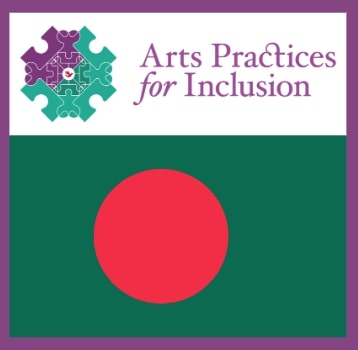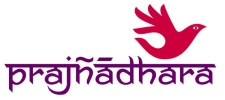
Arts Practices for Inclusion in Bangladesh
What is Arts Practices for Inclusion?
Arts Practices for Inclusion (API) are a series of methods and practices which aim to create the therapeutic benefits of social inclusion through arts practices like visual arts, drama, music, movement and play. API is suitable for teachers, special educators, psychologists, speech, language and occupational therapists, arts therapists, social workers, persons working in or wanting to work in intersections of disability, special needs, social or economic exclusion, with a view to bring the therapeutic benefits of arts practices as available through social inclusion.
The programme conceived by itself is path breaking and unique worldwide, recognized by organisations across continents. The dynamic nature of the programme makes it stronger every year apart from providing a great scope for localisation. The Millennium Alliance has also awarded a 3-year project to take this know-how to Nepal for creating capacity to enable inclusion using this methodology and we are working with 30 participants from India and Nepal for our first batch of API, and 18 participants from India and Nepal for our second batch, and the project has been an enormous success in both countries.
Our Intent for work in Bangladesh
We are looking at entering Bangladesh and collaborating with organizations for multiple reasons. The mental health infrastructure in Bangladesh is relatively new and mostly dependent on medical health and psychiatric care. Due to the COVID-19 crisis along with the Rohingya crisis ongoing in the country since the past 7 years, it has become more evident that the country is in need for trained professionals and support systems that promote psychosocial well-being of vulnerable communities. Many rural areas of Bangladesh continue to remain deprived of psychosocial support and the ratio of trained professionals in providing this care to the population is very small.
With international efforts focused majorly on the Rohingya crisis and supporting host communities there, the well-being of mainland population in remote areas or second tier towns/villages in the country is difficult to reach. We believe that API sessions are suited to promote psycho-social well-being of adults and children not only in bigger cities but also in these areas. To add to that, due to an ongoing conflict between host communities and refugee community, creating safe inclusive spaces at a various level is imperative. Also, since most of the population in these areas don’t have access to education, providing psychosocial support using the arts can be a way to make mental health more accessible to the vulnerable populations.
It is undoubtedly clear that primary interventions in supporting the economy and socio-economic lives of people is of primary importance. However, secondary measures such as a robust social protection system, community support, community health and wellbeing, community mental health are also equally important areas to look at.
The API programme looks at community health in a holistic way. By communicating with stakeholders, facilitating communication within the community, building dialogue and building bridges between people and communities, API can work with social workers, support workers, community workers, mental health professionals and other social sector staff to promote these equally important areas of intervention. API will do this in response to the district and community level needs and in partnership with organisations already facilitating such support measures to people and communities by introducing the arsenal of art in community practices. Art is a universal language of care and can act as a catalyst of care. Moreover, arts involve whole communities and can amplify the reach of individual-level interventions in a big way.
Our Offering:
As a first step to talk to organisations and open this dialogue about Arts Practices for Inclusion (API), we hosted a FREE Webinar on 15th September 2022. In this free webinar, we showcased API’s highlights and how organisations in Bangladesh can benefit from the same. We also spoke about the API Introductory Course and its offering during the webinar. Catch a glimpse of the webinar here.
